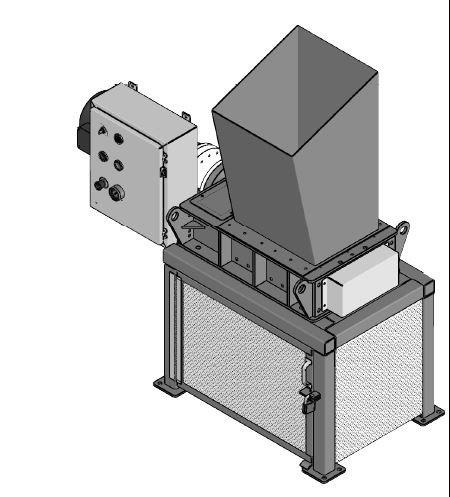Used for pre-treatment, a shredder can facilitate the composting process. In addition, it ensures the denaturation and destruction, in conformity with established norms, of all plant waste derived from outdoor or greenhouse productions.
BROME Compost offers a selection of composters and related equipment, such as a shredder, as well as a range of services adapted to your composting needs.
Managing plant waste for greenhouses, and other types of agricultural producers, is a key issue that can result in added operating costs. This is even more true for licensed cannabis producers, who must ensure the complete destruction and denaturation of their plant waste in order to conform to government regulations.
An industrial composting system that includes a shredder and a composter, is a highly efficient and cost-effective method for managing grow waste, in comparison to other options.
The shredder is an important pre-treatment tool to facilitate the composting of plant residues, thereby ensuring their destruction and denaturation.
A shredder can facilitate operations, because it offers an ideal pre-treatment for fibrous or woody plant residues, such as stems and rootballs. As a result, the volume of the organic matter is reduced before it is even put into the composter. The finer particles increase the available surface area for the microbial activity, which is essential to the composting process. At the end of this process, all plant residues are completely transformed into compost. This represents an added value, as it can be used as a soil amendment.
Benefits of using a shredder:
- Breaks up stems, root balls and other materials down into finer particles, reducing overall volume
- Easy disposal of a whole potted plant including growing media (if organic and compostable).
- Increases efficiency by reducing volume and increasing the available surface area for microbial activity, which is essential to the composting process
- Faster and more efficient composting;
- Shredding and then composting plant waste creates added value: the finished compost can be used as a structural amendment, thereby further reducing collection and disposal costs.
 Brome Compost
Brome Compost